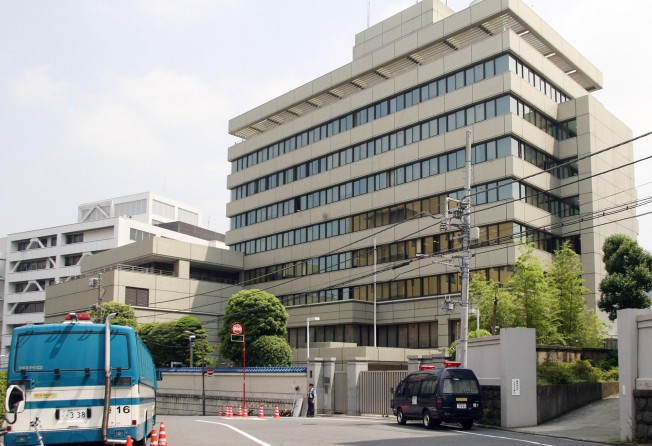
Sale of North Korean 'embassy' in Tokyo delayed over money-laundering claim
Rights group says mysterious Mongolian firm seeking to pay over the odds for Tokyo building is probably a front for Kim Jun-un

A Japanese court has intervened to delay the sale of North Korea's de facto embassy in Tokyo to a mysterious Mongolian firm.

When a Japanese television team arrived at the Mongolian address to ask about the purchase of the 10-storey building that is now occupied by Chongryon, the organisation that represents North Korean residents of Japan, and the prime plot it occupies in Chiyoda Ward, they were met by a bemused woman.
She told the TV crew her family had been living in the apartment for seven years and had never heard of Avar.
"I told the court that this was a typical case of money laundering and that the court cannot permit the transaction to go ahead," Kato told the South China Morning Post. "The address is fake and the registration of the company must therefore be illegal."
No deadline has been set for the court to make a decision on whether the transaction will go ahead, but Kato is confident any investigation will lead back to the North Korean leader. "Kim Jong-un wants to save face and not lose this property and I'm sure the decision to pay more than the market value is a case of a dictator's whim," he said.
The minimum price for bidders for the property was set at 2.13 billion yen (HK$168 million), while a previous deal to buy the building in May for 4.52 billion yen fell through when the buyer, the chief priest of Saifukuji Temple, was unable to raise the funds by the deadline. Kato said it was therefore curious that the latest sale price was 5.01 billion yen.
"The buyer could have got it for a lot less than that and I believe they offered so much in the hope no answers would be asked and the real purchaser could remain anonymous," he said.
That was always likely to be a vain hope, given the interest in the property, which was put on the market in March by the government-backed Resolution and Collection Corp. in an effort to recoup loans of 62 billion yen that it extended to the residents' association after the collapse of a number of financial institutions for North Korean residents of Japan.
The involvement of a Mongolian firm also raised eyebrows in Japan, as no Mongolian firm has ever purchased a building in Tokyo and there are very few Mongolian companies with enough cash to carry out such a deal.
As well as the suggestion that Avar is a front company for the North Korean regime, there has also been speculation that the Mongolian government might be involved as part of the burgeoning relationship between the two regimes.
In September, representatives of the two governments held talks on economic, trade, scientific and technological issues in Pyongyang. The Mongolian government was represented by Khaltmaa Battulga, minister of industry and agriculture, while trade minister Ri Ryong-nam led the North Korean delegation.
On October 18, the two nations celebrated the 65th anniversary of the establishment of diplomatic relations with a reception at the Mongolian embassy that was attended by the Mongolian minister of foreign affairs, vice-chairman of the parliament and several other ministers and senior government officials.